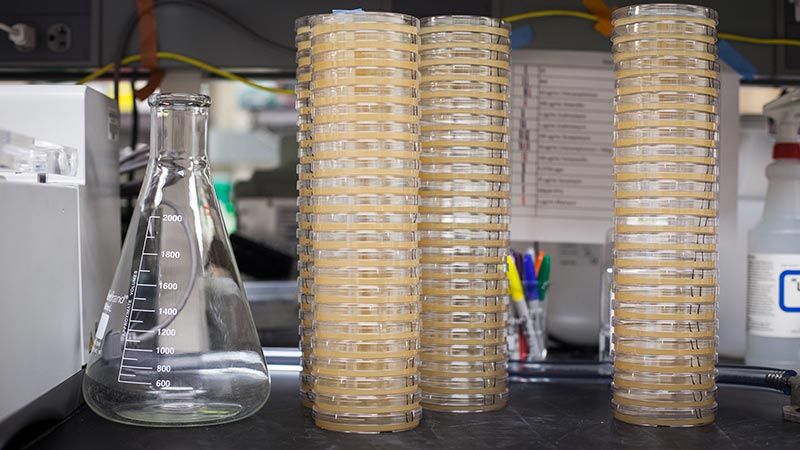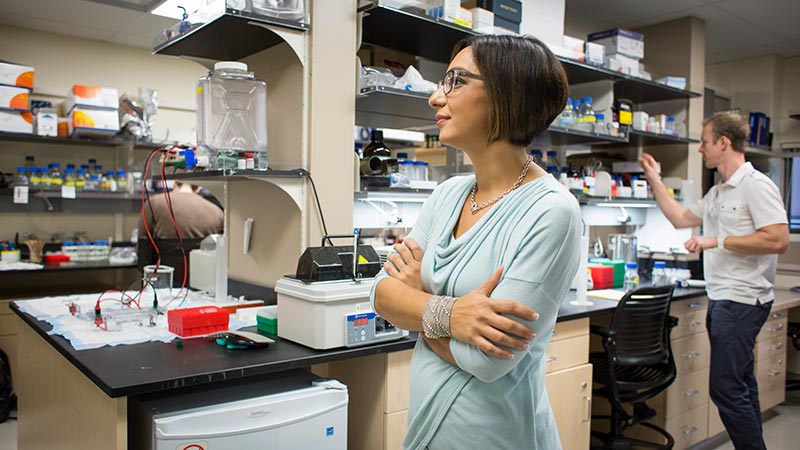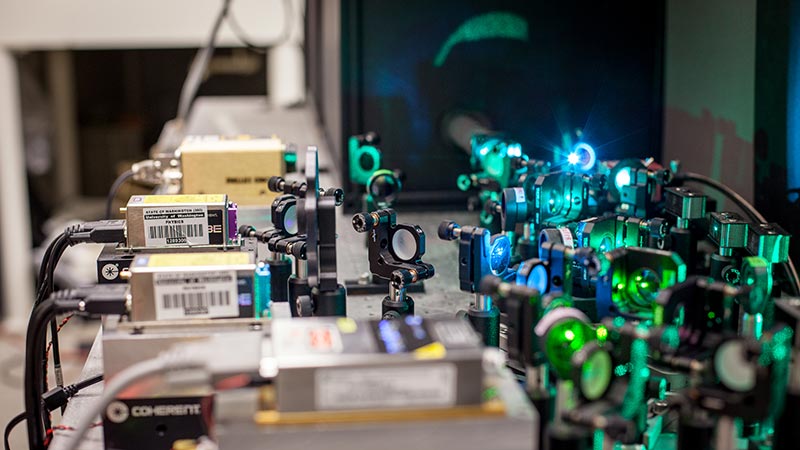“When you’re an immigrant, the problems you face are unusual ones, so you have to come up with creative solutions,” says Houra Merrikh, winner of a 2016 Vilcek Prize for Creative Promise. “That principle influences what I do.”
Houra was born in Tehran during the Iran-Iraq War; seeking to escape the war, her family moved to Turkey when she was three years old. The plan was to apply for green cards to the U.S., but alas, “the plot thickened,” says Houra.
Instead, the family waited, receiving a letter from the American consulate every six months informing them that the application review process would require yet another six months. This went on for 13 years, and by the time the application was approved, her parents were divorced and her brother was 21, too old to receive a green card under the family’s application. Only Houra and her mother still qualified, but by then, her mother was too ill to move; Houra would have to go alone.

At the age of 16, Houra was on her own. “The only thing my parents had to give me was the mandate to get an education,” she says. Houra enrolled in community college and worked several jobs at once, in order to support herself and pay tuition: waiting tables, selling cars, and tutoring students.
Although it was a difficult time, Houra believes those hardships had a positive impact on her scientific career. “I’ve been told by my mentors that I have a brave spirit,” she says, “that I’m not afraid to jump into something totally new.” That braveness has paid off; Houra went on to finish a master’s and a doctorate at Brandeis University, and now she is an assistant professor of microbiology at the University of Washington School of Medicine.

Given her journey to get to where she is today, it’s no surprise that Houra’s research focuses on genetic conflicts and the ways that these conflicts spur evolution. In every cell, there are two essential processes that take place on the genetic level: The genome has to be replicated (known as DNA replication), and the genes have to be expressed (known as transcription). The machines for both processes function on the same genetic template, like two trains traveling on the same track; if they collide with each other, it results in destabilized genomes and mutation.
Genes are coded in one of two orientations: co-directional (both machines are traveling in the same direction) and head-on (machines travel toward each other). Genes coded in the head-on orientation experience high levels of mutation due to such conflicts, and it was long thought that genes coded in the co-directional orientation had evolved to avoid these collisions. If that were true, though, Houra wondered, why hadn’t all genes evolved to be co-directionally oriented?

Collisions, Houra found, can carefully orchestrate the process of evolution, specifically in head-on oriented genes. “For a long time it was thought that under conditions where adaptation is demanded, cells can increase mutation rates globally and all genes in the genome experience higher mutation rates, and therefore have a higher chance of obtaining a beneficial mutation,” she explains.
But there was an inherent problem to that model: You wouldn’t want all genes mutating at the same time, as many genes are essential and mutations could lead to death. Houra’s research laid forth a model of genetic mutation that happened in a highly specific and targeted manner, through head-on collisions, allowing certain genes to evolve faster in response to environmental changes. Her work exposed a mechanism by which evolution could be spatially and temporally controlled—a first in the field.
Of course, Houra is no stranger to conflicts. She’s excited to receive the Creative Promise Prize, which “recognizes something that I never thought I would get recognition for formally,” she says. As with genes primed for collision and conflict, it was a series of hardships that forged Houra’s resilience, creativity, and drive. “It’s kind of a cliché,” she says, “but it’s true.”